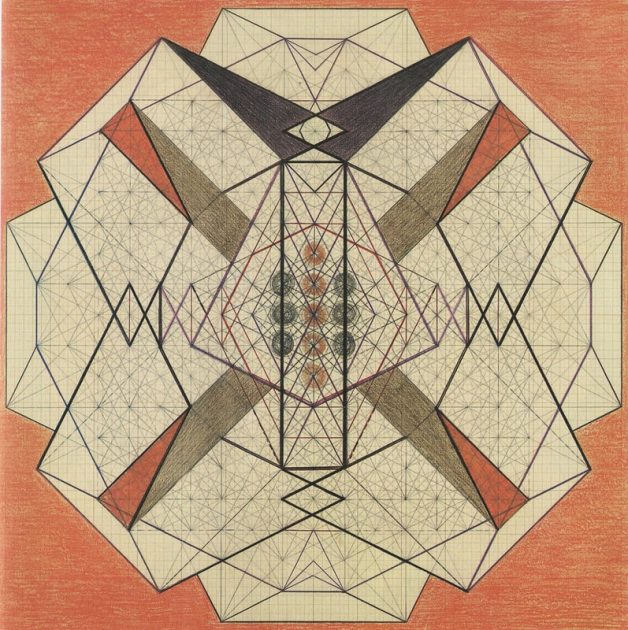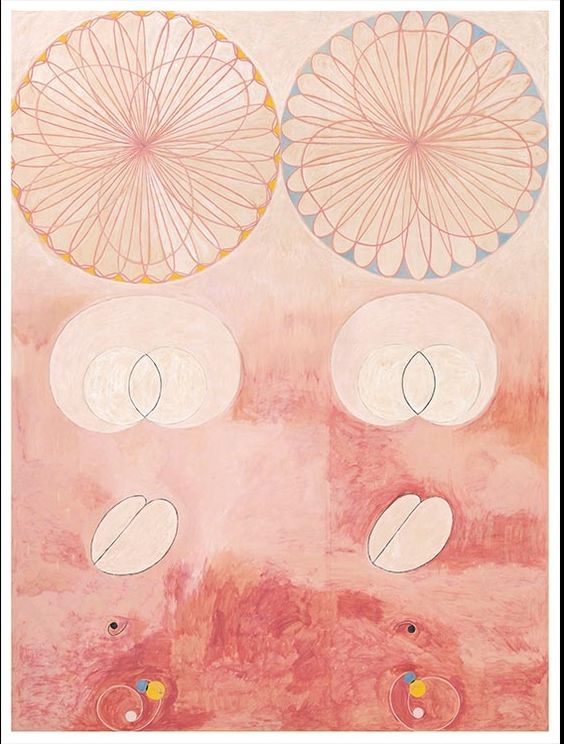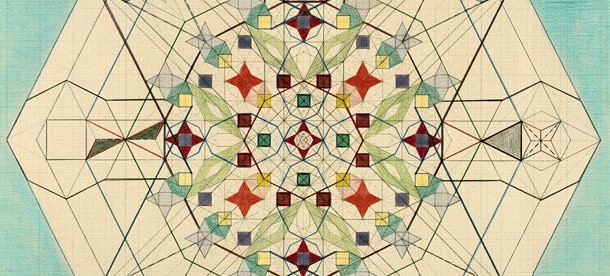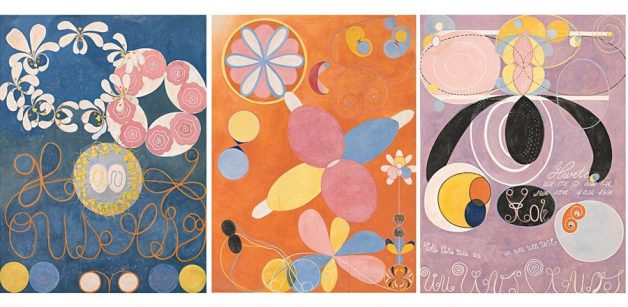
Emma Kunz
Work No.356
pencil and crayon on graph paper, 105 x 102cm
Emma Kunz Centre, CH-5436 Würenlos © Anton C. Meier
Hilma af Klint and Emma Kunz: Conscious collaboration with Spirit
Hilma af Klint (1862-1944) and Emma Kunz (1892-1963) both arrived at their pioneering artworks through conscious collaboration with spirit – in which the collaborator invites beings not in physical form to inform the making of their work. While more attention has been paid to both of their careers in recent years, it has primarily focused on their approach to abstraction and the fact that af Klint’s first abstract paintings predate Kandinsky’s (the ostensible “founder” of abstraction), rather than the specific nature of their processes. This order of focus diminishes the seriousness and purpose of their work and the truly innovative nature of their method – which was an abstraction born of necessity, by way of collaboration with spirit. To separate the freshness of their visual forms from the processes they used to reveal them misses the point entirely. It is exactly because they were consciously collaborating with spirit that they were able to create something so radically new. This kind of innovation does not emerge out of the perceptions of our intellect or ego, but from the infinite knowledge available to the soul.
In creating their work, these women further developed a way of making that is very different from any other conventionally-known means and has only been used by a handful of artists. Hilma af Klint channeled a group of five spiritual beings with four other women and received directions from these beings about what she was to draw and paint. She wrote in her journals: “The pictures were painted directly through me, without any preliminary drawings and with great force. I had no idea what the paintings were supposed to depict; nevertheless, I worked swiftly and surely, without changing a single brushstroke.” Emma Kunz used her higher sensory perception and a pendulum (hers was jade and lead on a chain) to inform the intricate geometric patterns that demanded to be created through her. She used her pendulum to determine the primary geometry of her drawings, letting it swing over the surface of blank graph paper. She said of her drawings, “[E]verything happens according to a certain regularity which I sense inside me and which never lets me rest.”

Hilma af Klint’s “Group IV, The Ten Largest, No. 9, Old Age” (1907) at the Guggenheim Museum. Roberta Smith points to the painting’s “crisp linear elements.”CreditCreditThe Hilma af Klint Foundation, Stockholm
see full article below @
Hilma af Klint and Emma Kunz: Conscious collaboration with Spirit





